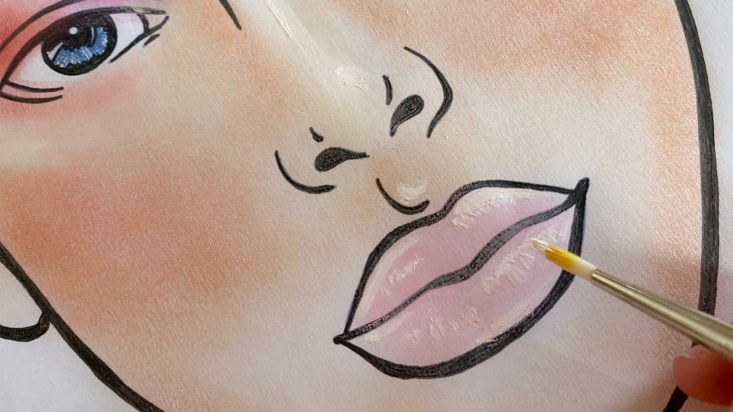
So, if you have ever worked a runway or even just visited your local MAC Cosmetics store, you are probably super familiar already with those (often unhappy) looking papers floating around with face charts. My first foray into these diagrams was actually when in esthetician school, and, frankly I kind of hated doing them. At the time, this was mainly because the US was in the beginnings of the pandemic and we weren't allowed to work on each other's faces because that is difficult to do in any meaningful sort of way with a mask on. We eventually moved on to slightly creepy fake heads (more on that later) but I did graduate during the middle of a mask mandate, so these face charts were kind of a memory attached to a time when there was a lot of stress and uncertainly about literally everything going on. I am sad to say that I threw my old charts away maybe the evening after I graduated because I wanted to never see them again or use the makeup brand our school assigned us (cake city!).
Now that I am a little more removed from the stress of trying to complete a ridiculous amount of these charts in a short amount of time, I actually find them a lot more fun and relaxing. Especially if you have an incredible makeup collection but a social calendar that is.. well.. less poppin'. They are basically the beauty version of a coloring book. It is also a great way to organize your stash into looks you might actually wear and make plans for fun events like galas or even Halloween. So we decided to build an MSA face chart. The benefits of this specific one are one open and one closed eye and * cough * more realistic proportions than the gaunt faces seen behind the scenes of designer shows.
The History of Face Charts
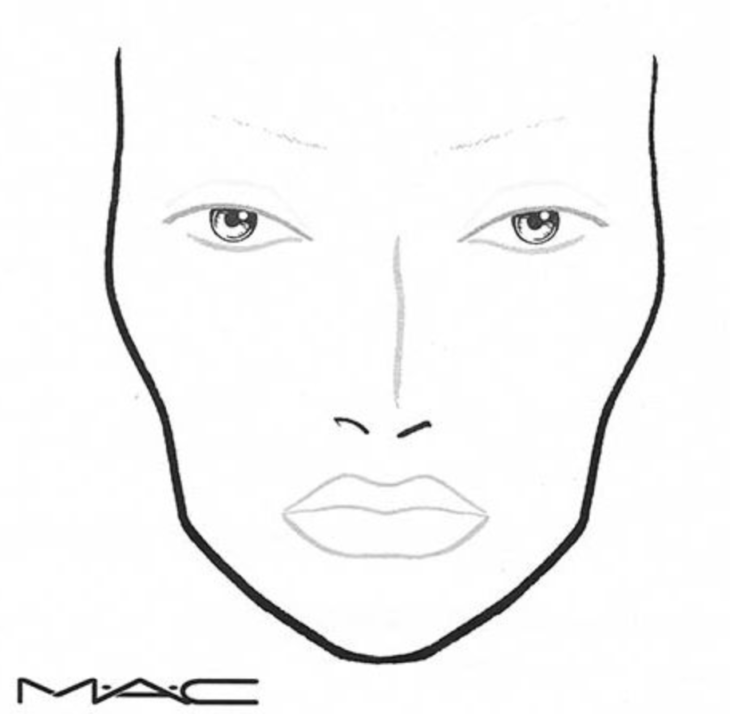
The famous MAC Cosmetics Face
Face charts seemed to have popped up sometime in the 80s and were very simple line drawings used by makeup artists to plan out specific looks. Again, if your mind automatically goes to the MAC Cosmetics version, this makes sense. That very stylized version was pretty much industry standard for a long time. These charts are used to both plan out looks and also record looks for future applications. For example, if you have a bride who wants to try out a look, a face chart is the perfect way for you to document the products and placement on her face for when she returns for the big day. It keeps the look consistent across a span of time without you having to have a super memory. It is even more crucial for larger events with multiple makeup artists tasked with creating the same overall look across a larger group of people, like models. Most designers have an overall "vibe" they want for the model's makeup, hair, and nails that fit the look or theme of the fashion the model will be wearing. The face chart is the makeup artist's guide to replicating the vision over and over.
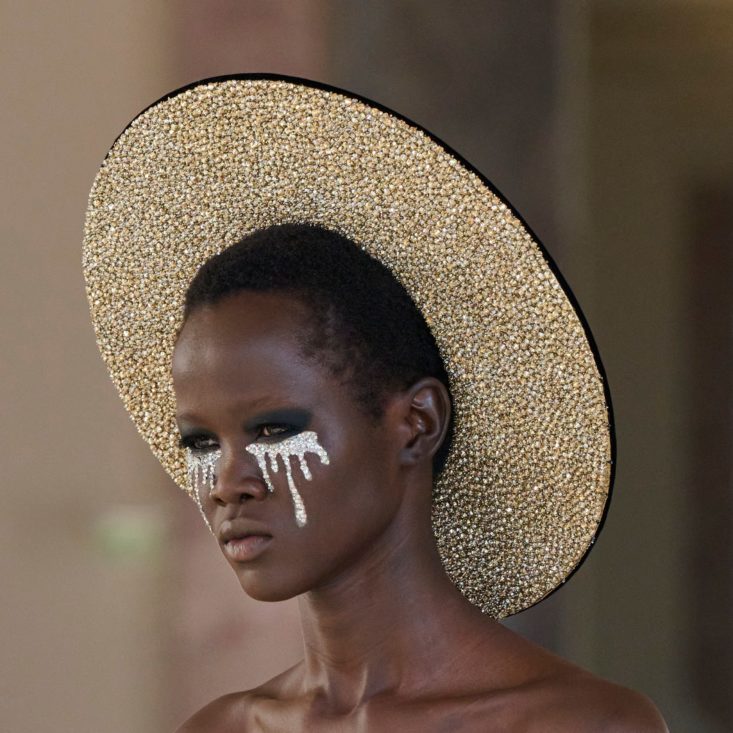
by Peter White from the S/S 2022 Schiaparelli Runway
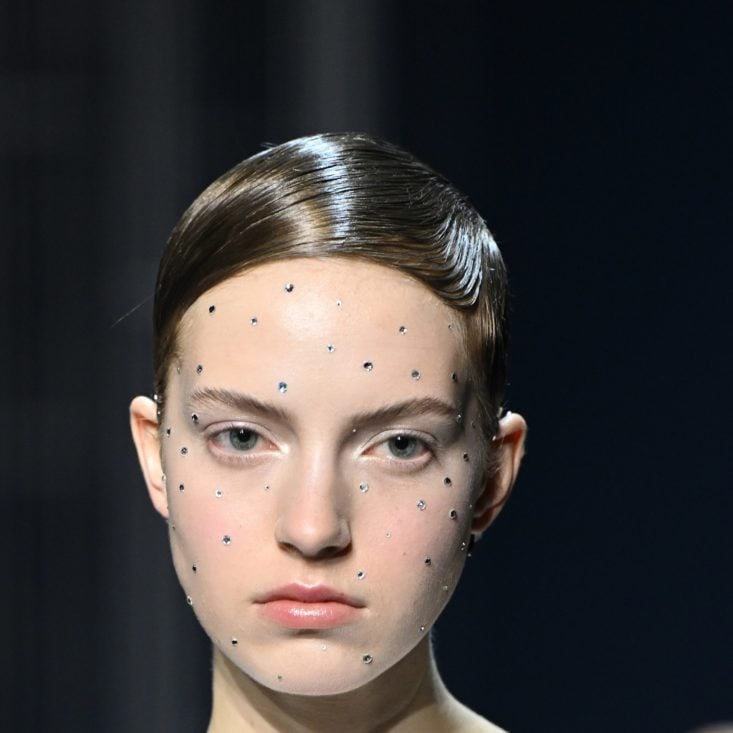
by Daniele Venturelli from the FENDI S/S 2022 Runway
Face Chart 101
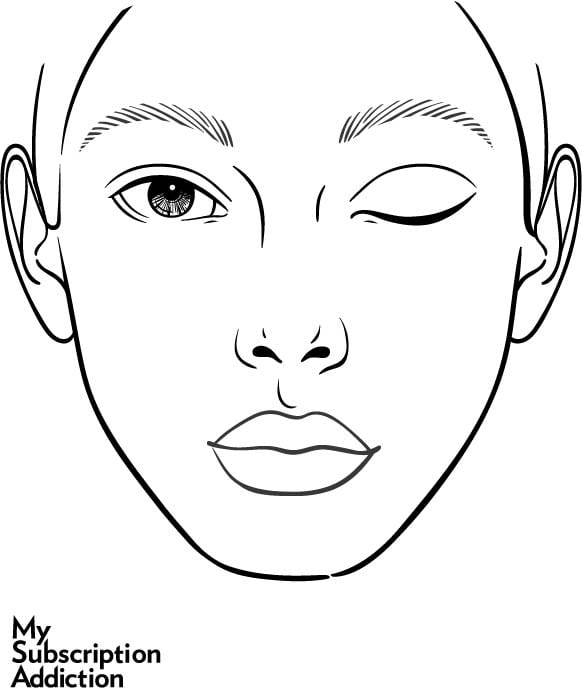
So, what do you use on your face chart? Literally, any real makeup you want! I generally avoid liquid foundations unless I have mine printed on a thicker paper than normal copy weight. I also tend to add in random art supplies like white gouache for highlights. I apply my makeup to the paper with normal makeup brushes too! Makeup sponges and fingertips are also great for blending on the paper and creating more realistic gradients and shadows.
You can also download this image and use it digitally too! I have had a ton of fun playing on my iPad and pencil with these charts, recreating runway looks.
My Inspiration
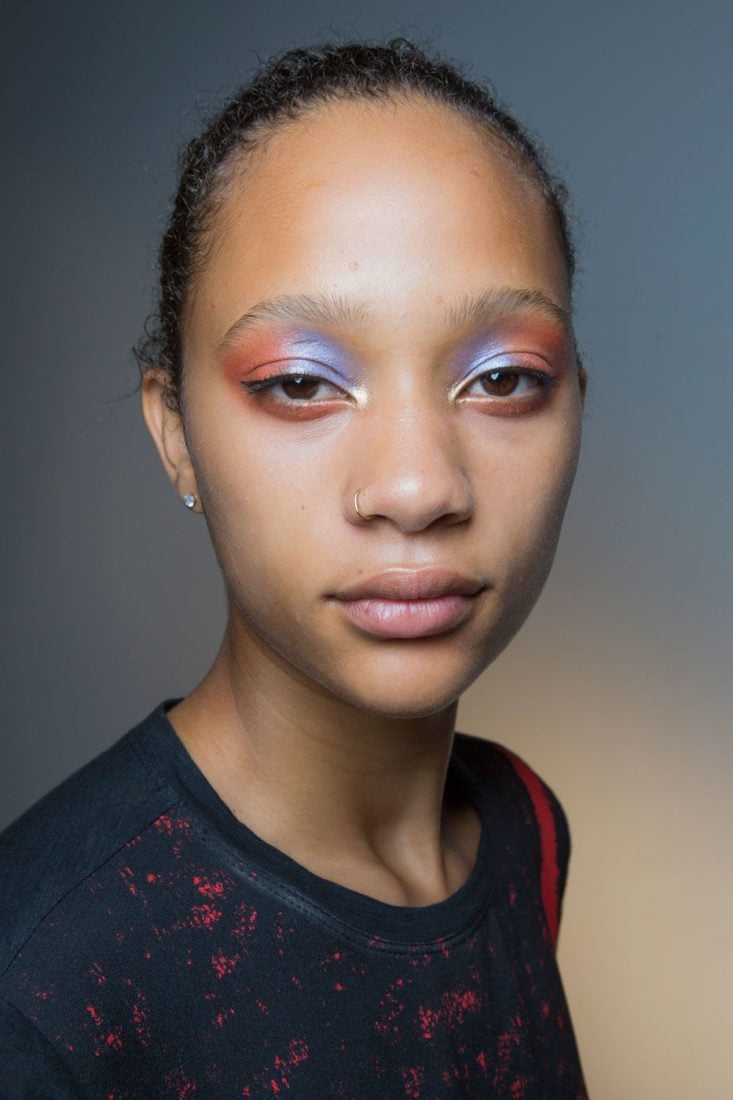
from the S/S 17 Jill Stuart runway
In typical Megan style, I am loathing winter and really craving spring pastels! This Jill Stuart look has lived in my head rent-free since 2017. And though her look was more of a cornflower blue, I decided to use a very pretty lilac shade instead.
How I Got There
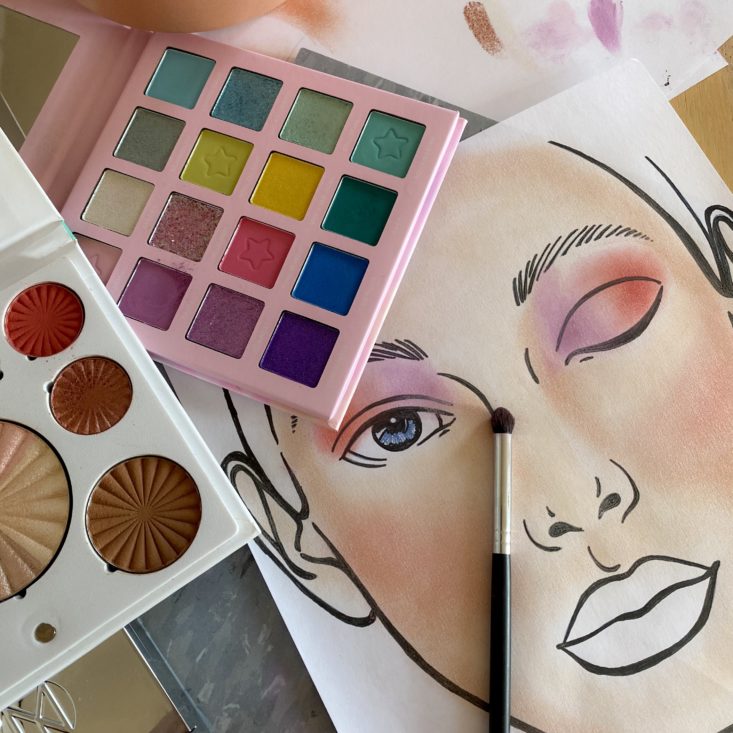
Before we dive in, you might notice some of my lines look a little different than the printout. That is because I realized right before I sat down to start on this project that printer ink runs out if you never replace it. Wow! So mine popped out with teal lines that I had to manually cover with black. Just an FYI!
- I started by applying a tinted powder all over the face with a brush then used my fingers to blend it into the paper.
- I then went in with a great bronzer and carved out the contour I would on a real face.
- This adds a little dimension to the paper.
- I then started to apply my shadow, first with a brush, then using my fingers to blend.
- I also added a pale pink lip color (I used a shadow) and topped off some highlights with white paint.
Final step? Admire your work!
What Can You Do Next?
Well, if you love your work and want to keep it around, make sure you clearly label what products you used and where you applied them. I then recommend stashing them in those clear slip pages you can collect in a binder. Ready for something a little more 3D but maybe not an actual human? They sell heads for that!
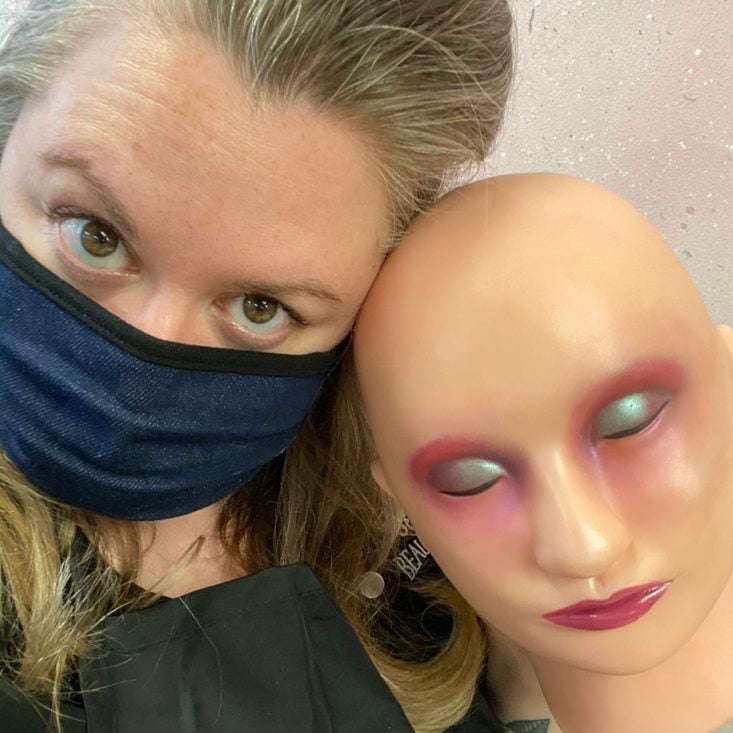

Here is mine back in school. The assignment was disco. #nailedit. These are relatively inexpensive ($10!) and a lot of fun to hide in your freezer to scare your husband late at night. You can also clean them off with makeup remover and start over and over.
How do you play with your makeup collection? Have you ever experimented with face charts before? Let me know in the comments!


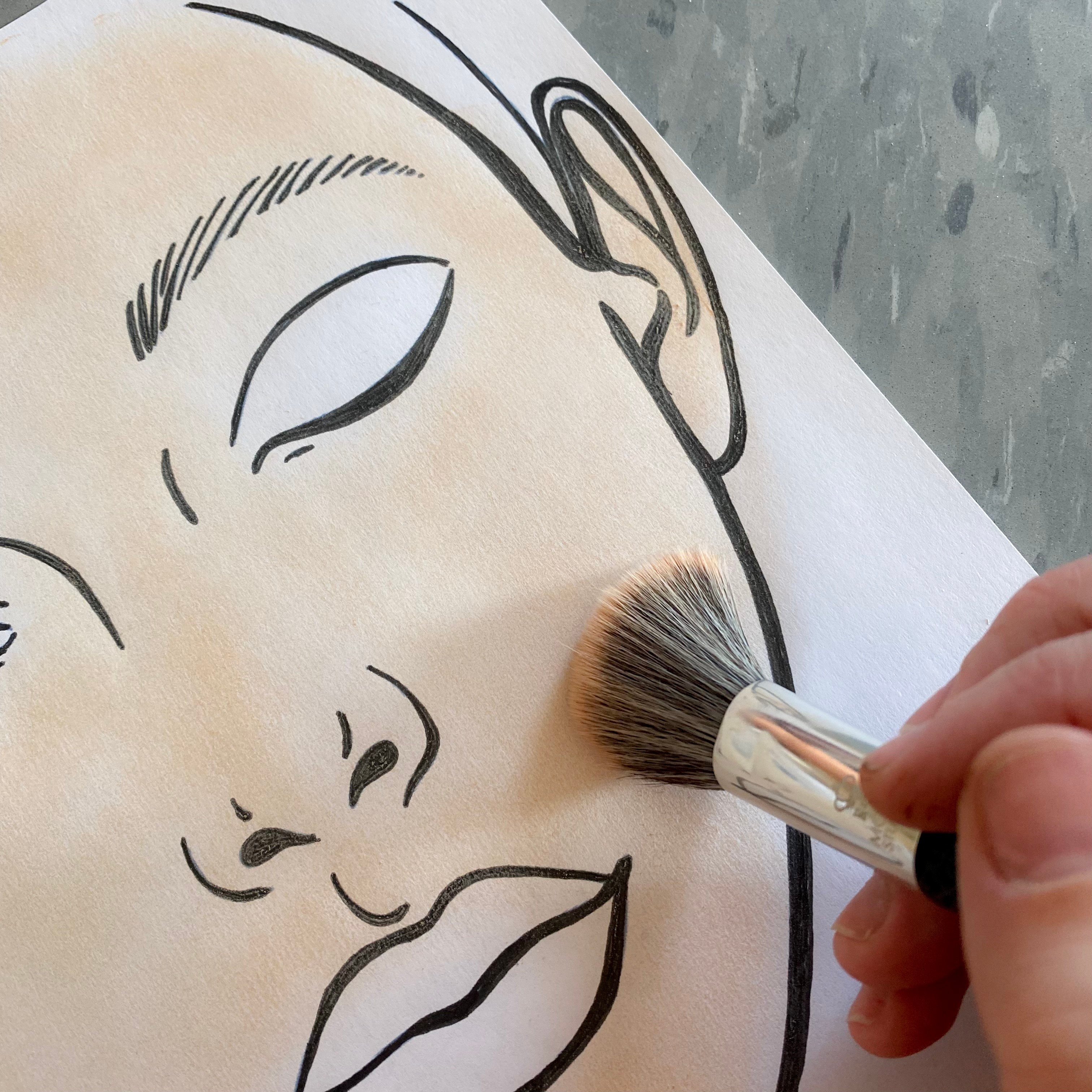
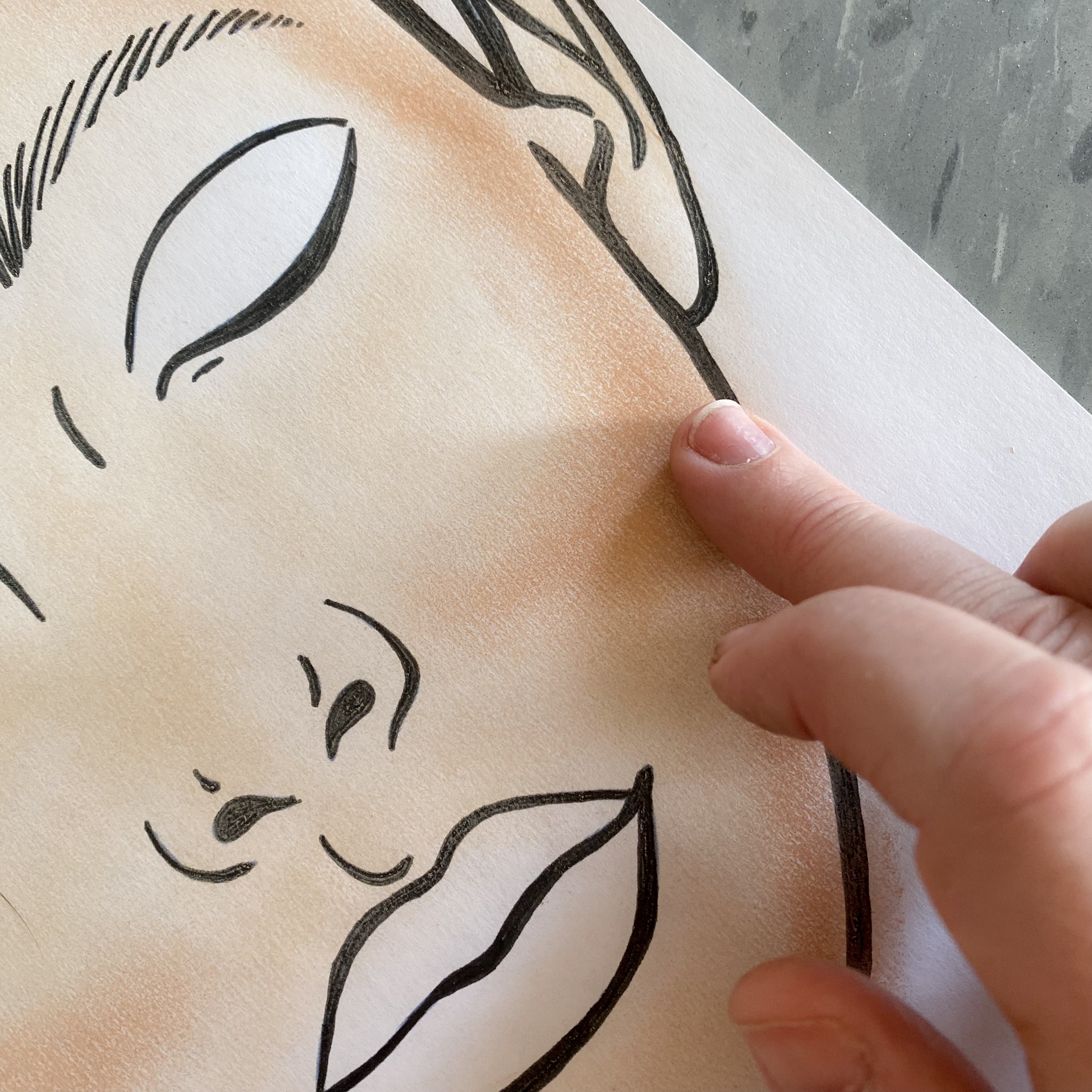
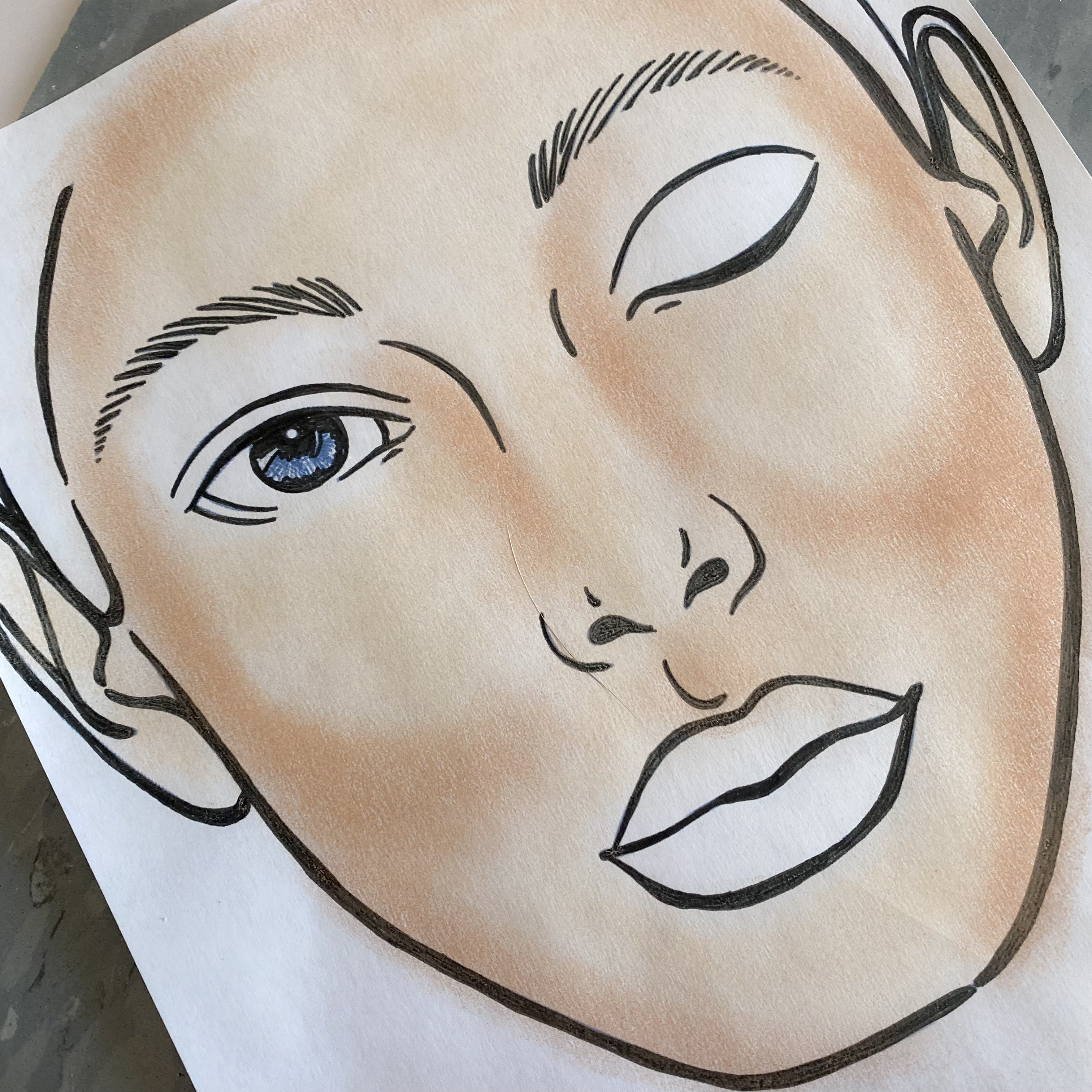
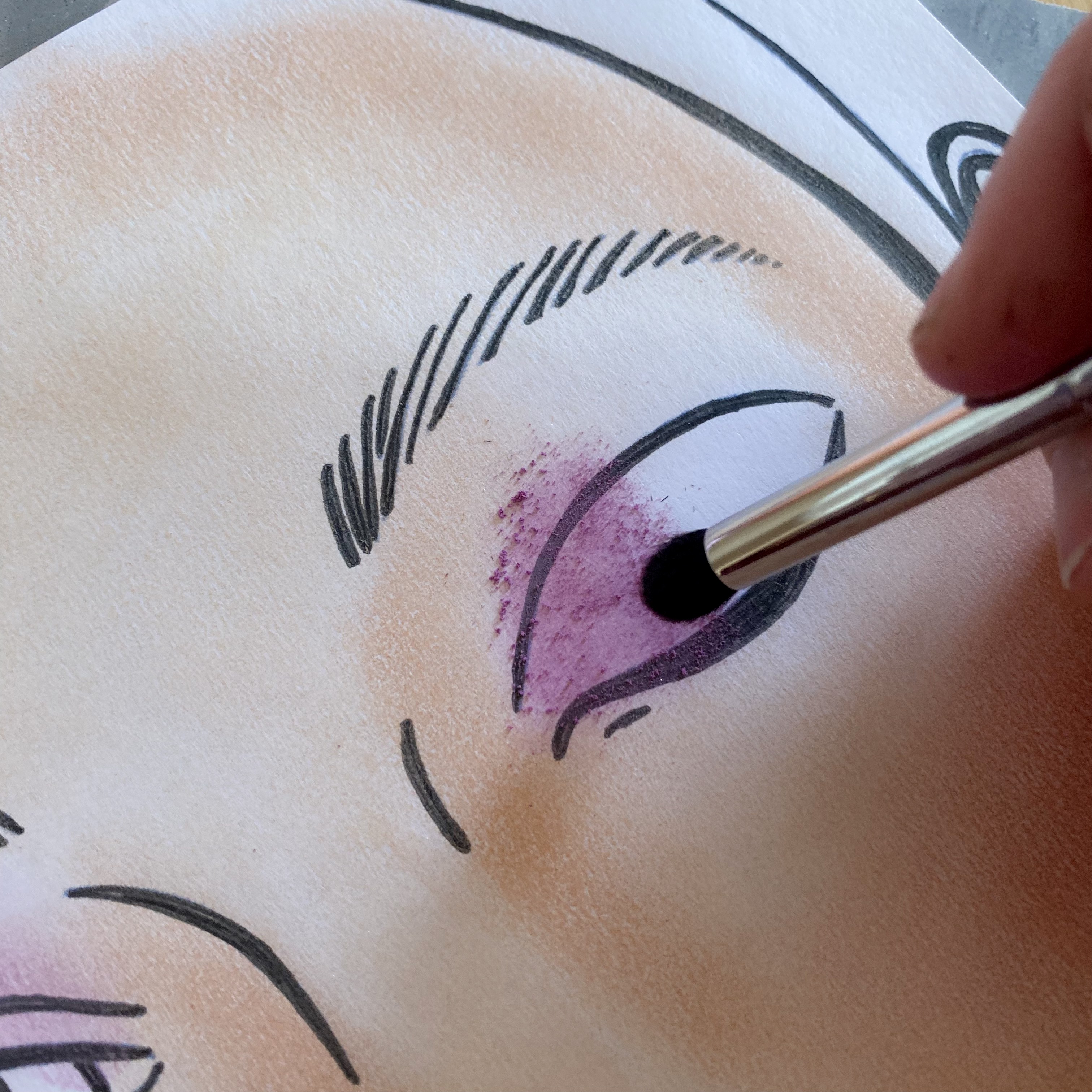
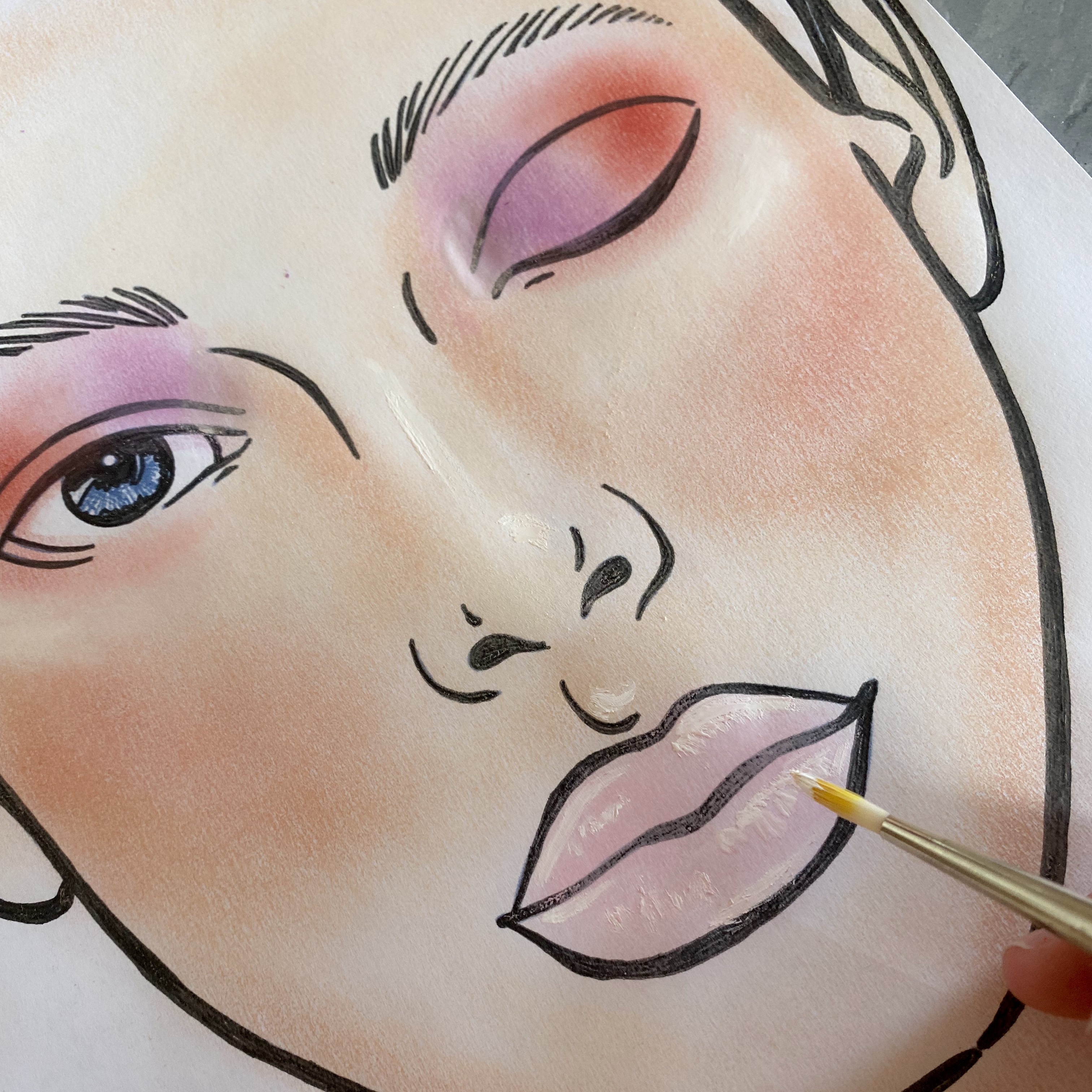
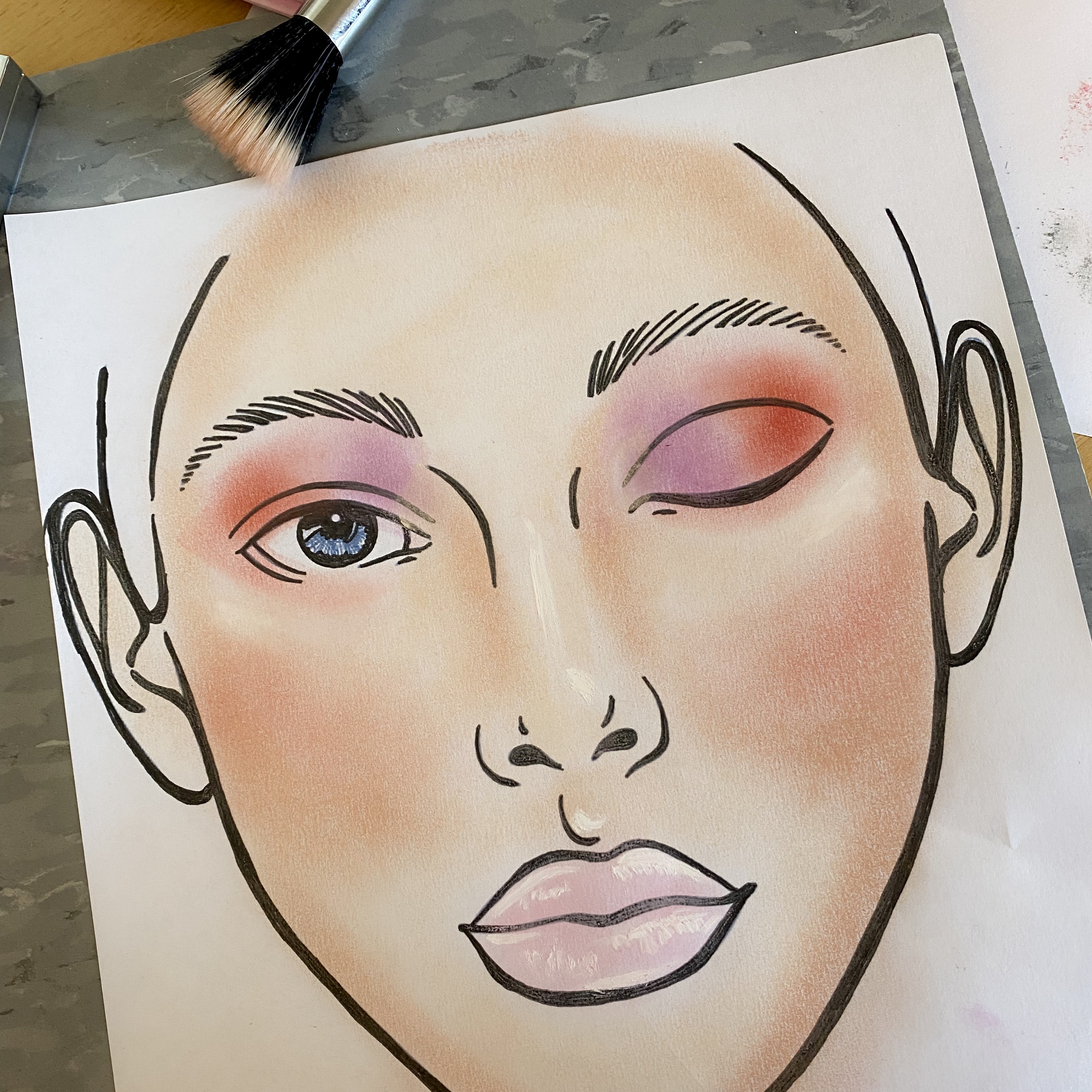
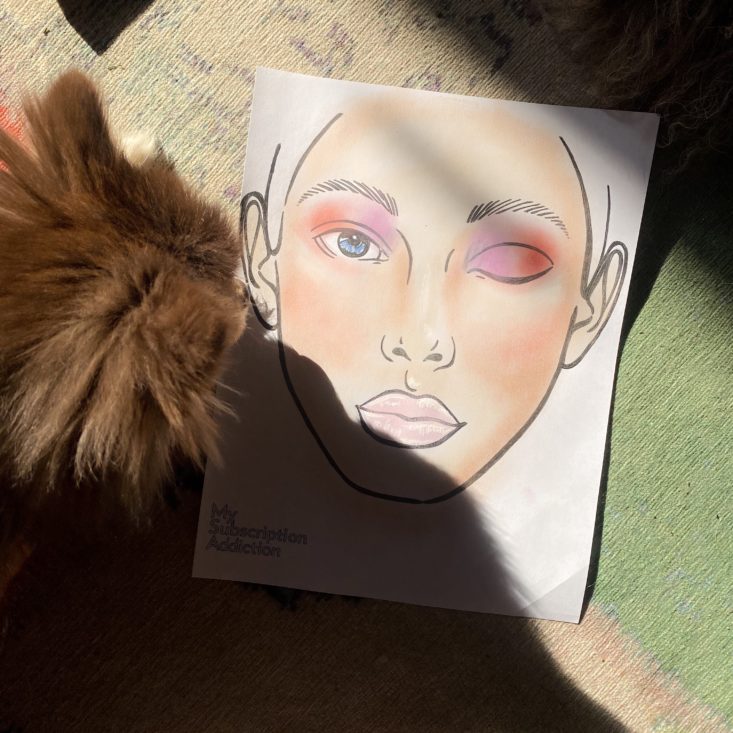



Please do not enter your email address in the Name field or in the comment content. Your email address will not be published. Required fields are marked *. Remember to post with kindness and respect. Comments with offensive language, cruelness to others, etc will not be approved. See our full comment policy here.